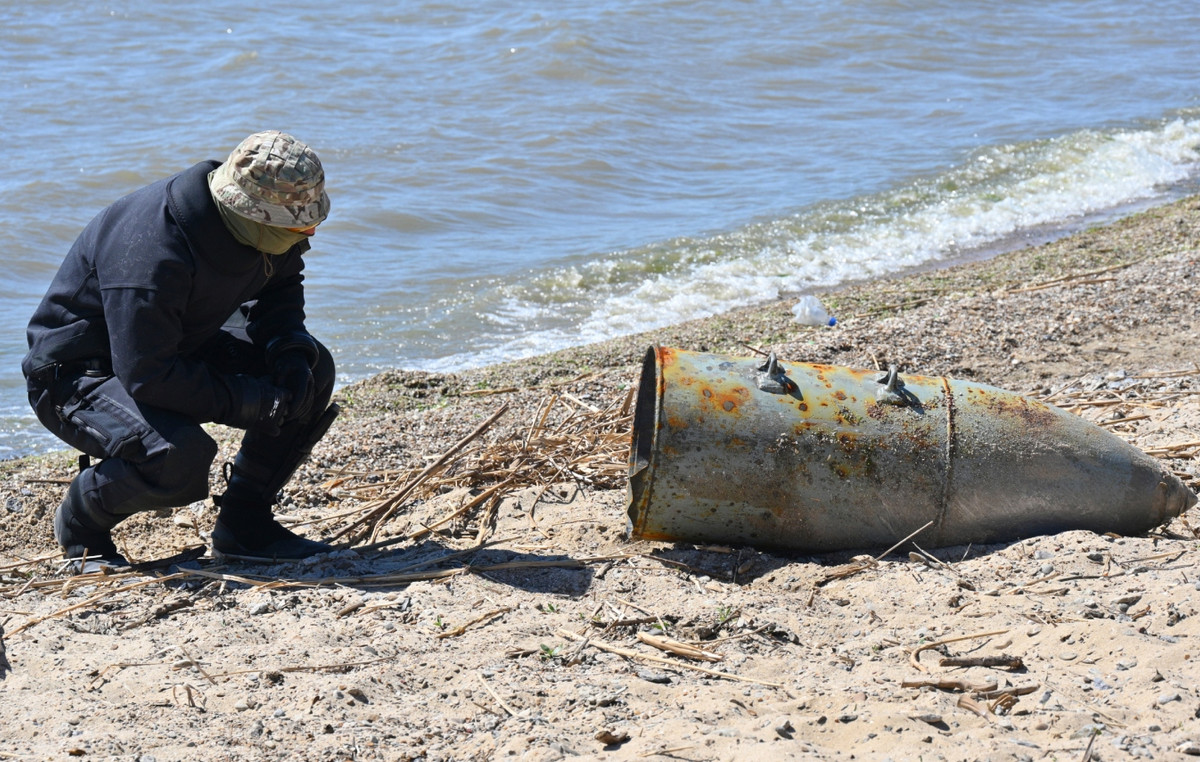A discussion that took place earlier this month at the Labor Court of Diadema, in Greater São Paulo, ended with a lawyer arresting a judge. Rafael Dellova argued that judge Alessandra de Cássia Fonseca Tourinho committed “abuse of authority” by allegedly yelling at him and ordering him to leave the courtroom.
The Code of Criminal Procedure establishes that “any [cidadão] of the people may and the police authorities and their agents must arrest whoever is found in flagrante delicto.” However, experts consulted by CNN they assess that there are irregularities in the lawyer’s actions when ordering the magistrate’s arrest.
Criminal Law professor Ulisses Augusto Pascolati Junior, from Universidade Presbiteriana Mackenzie Alphaville, cites article 33 of the Organic Law of the National Judiciary (Loman), which, in section II, establishes that the judge “shall not be arrested except by written order of the Court or the Special Body competent for the trial, except in the case of flagrant crime.” non-bailable crime in which case the authority will immediately communicate and present the magistrate to the President of the Court to which he is linked”.
The Federal Constitution defines as non-bailable crimes the crimes of racism, torture, drug trafficking, terrorism and attacks against the Democratic State of Law, in addition to heinous crimes. Among the heinous crimes are acts against life (such as homicide and robbery), rape and genocide.
In the case that occurred in Diadema, the lawyer alleged that the judge had committed “abuse of authority”. Pascolati Junior explains that there are criteria for someone to be charged with this crime. “NIt is not simply a label: ‘disrespected a certain right’ or ‘disrespected a certain prerogative, that would be abuse of authority’. No. There needs to be a description of what conduct would represent abuse of authority.”
Even so, the professor emphasizes that crimes of abuse of authority are bailable. In other words, they could not serve as a basis for the lawyer to arrest the judge. “Not only are they bailable, but in the vast majority of cases, they can be subject to consensual conflict resolution measures. In other words, a criminal settlement agreement or a non-prosecution agreement.”
“Any citizen can arrest another person, whether it be a lawyer, a judge, an ordinary citizen or a judge. However, lawyers, judges and judges have special jurisdiction. So, for this to happen, this crime must be non-bailable. So, in this case, the arrest can occur and [o juiz] could be arrested, which did not happen in that hearing, because, although there was an abuse of power, in the lawyer’s understanding, a non-bailable crime did not occur”, adds professor Andreia Antonacci, also from the Law course at Universidade Presbiteriana Mackenzie Alphaville.
Watch the video of the discussion:
Abuse of authority against lawyers
The professor, who is a judge at the Court of Justice of São Paulo, adds that article 43 of the Abuse of Authority Law provides for crimes against violation of the rights or prerogatives of a lawyer.
It is considered a crime when the following rights of the lawyer are denied:
- “the inviolability of their office or workplace, as well as their work instruments, written, electronic, telephone and telematic correspondence, as long as they are related to the practice of law”;
- “communicate with their clients, personally and privately, even without a power of attorney, when they are arrested, detained or held in civil or military establishments, even if they are considered incommunicado”;
- “have the presence of a representative of the OAB, when arrested in flagrante delicto, for reasons related to the practice of law, to draw up the respective report, under penalty of nullity and, in other cases, express communication to the OAB section”;
- “not to be held in prison, before a final judgment has been handed down, except in a General Staff room, with suitable facilities and amenities and, in their absence, under house arrest”
Other side
A CNN contacted lawyer Rafael Dellova, but has not yet received a response.
Source: CNN Brasil
I’m James Harper, a highly experienced and accomplished news writer for World Stock Market. I have been writing in the Politics section of the website for over five years, providing readers with up-to-date and insightful information about current events in politics. My work is widely read and respected by many industry professionals as well as laymen.







